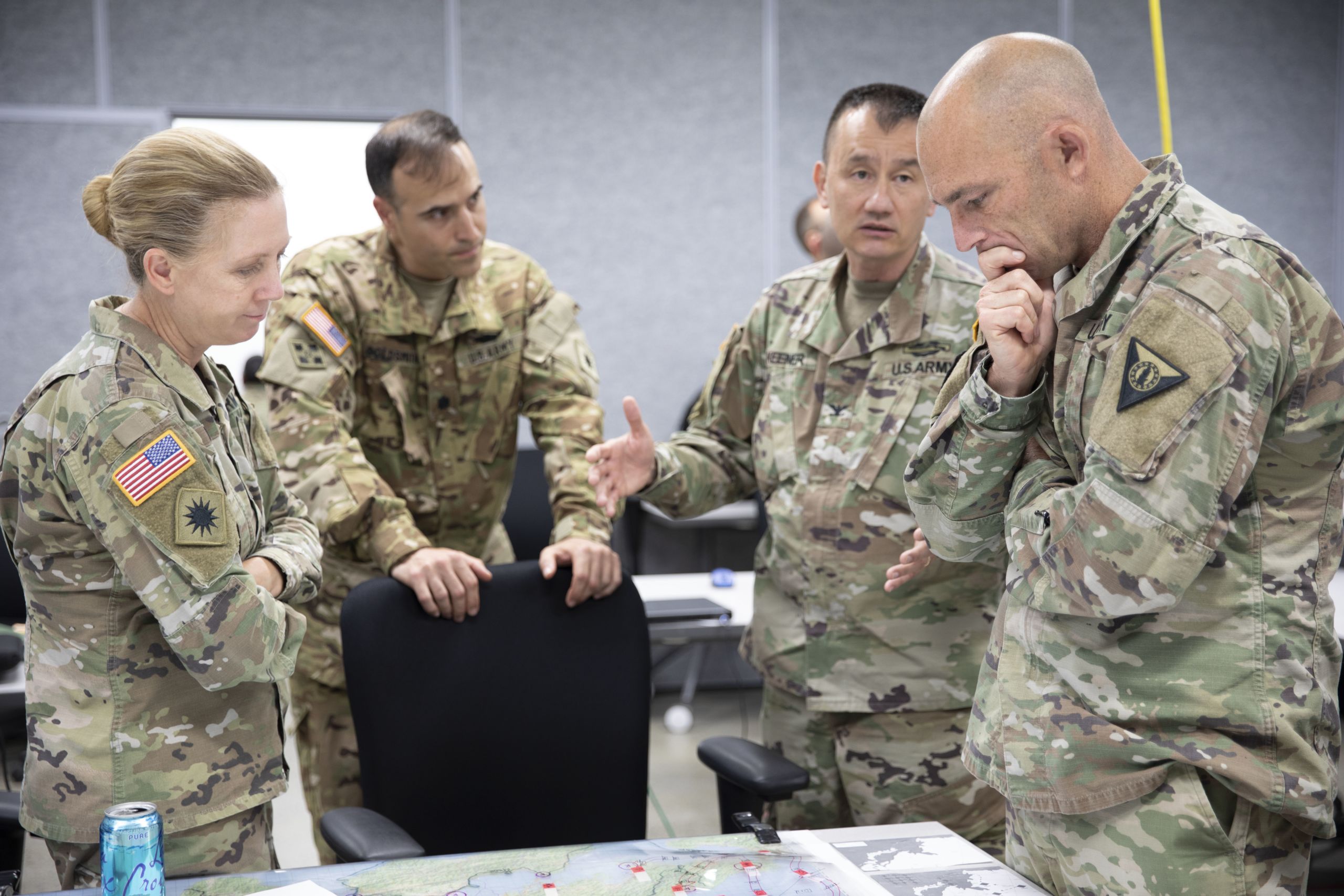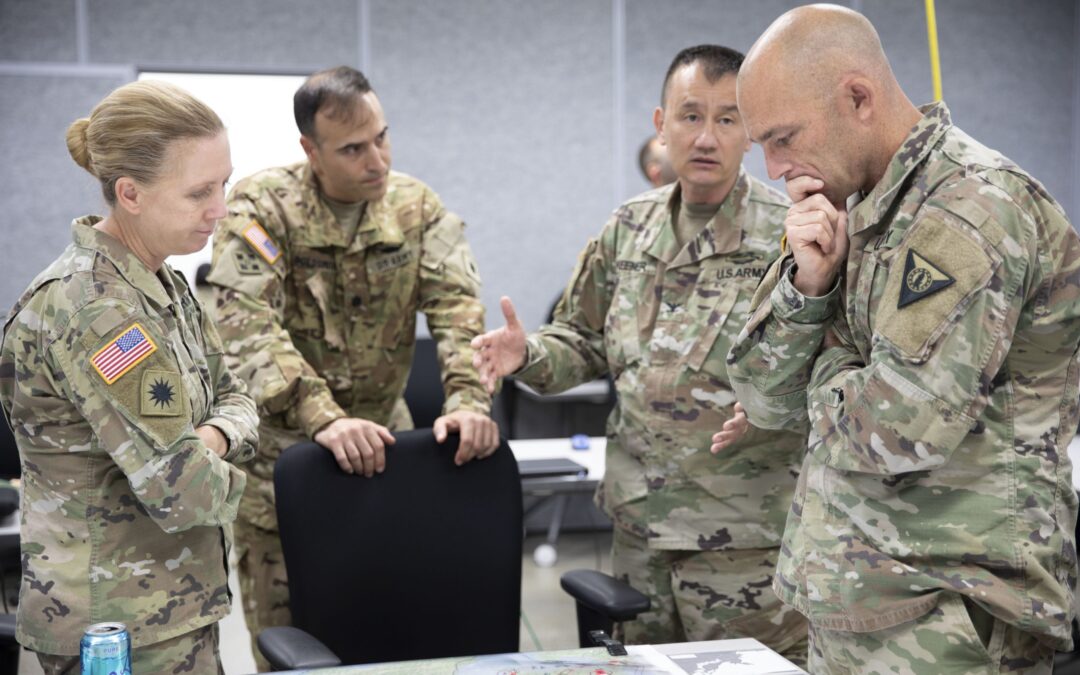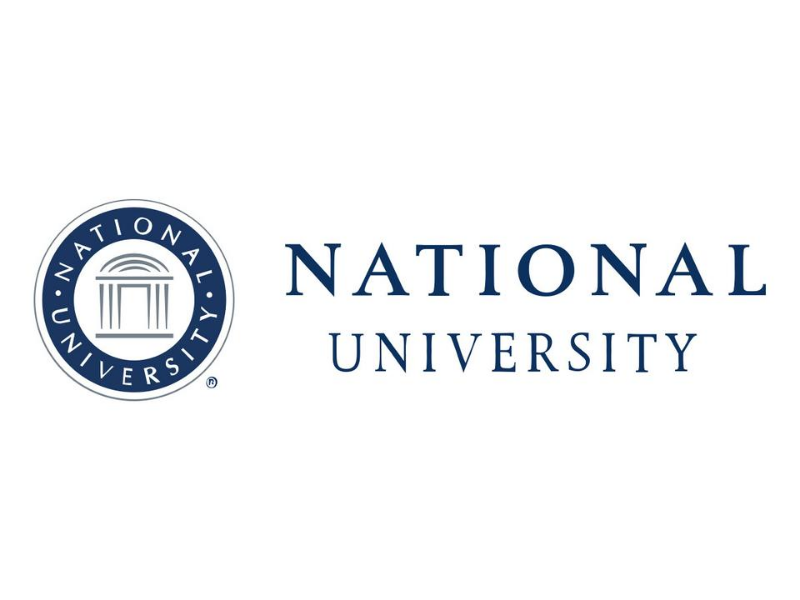
Units like the 311th Medical Logistics Support Team from the Ohio Army Reserve, 25th Combat Aviation Brigade from Wheeler Army Airfield in Hawaii and 1st Battalion, 28th Infantry from Fort Benning, Georgia, will contribute key roles to the upcoming annual exercise that rotates between JGSDF divisions and U.S. Army units.
The 40th ID last took part in the exercise in 2018 when U.S. Army Lt. Col. Brian Wintzer participated as the deputy; this year he is serving as the 40th ID fires support coordinator.
“It feels great being back in Japan working with the JGSDF,” said Wintzer. “Even though our languages are quite different, we share a unique bond as soldiers which enables us to work well together and grow the partnership. I’m excited to be part of such a great bilateral team, learning from one another and sharing ideas.”
The sharing of ideas came after World War II when the United States and Japan entered into an alliance with the U.S.-Japan Mutual Security Treaty signed in 1951. Because the Japanese constitution did not support an offensive military posture at that time, Prime Minister Shigeru Yoshida allowed the U.S. to maintain a presence in Japan in exchange for military protection. This agreement allowed the country to rebuild. Over the years, the partnership has grown to become the cornerstone of stability in the Indo-Pacific region.
The interoperability of this united force is tested during Orient Shield, which offers an opportunity to exchange not only strategic knowledge, but also culture and lasting collaboration.
“I was prior active duty in special forces operations and it was very important to build rapport with NATO countries,” said U.S. Army Sgt. Victor Gonzalez, an intelligence analyst with the 40th ID, Intelligence and Sustainment Company. “I think the Army should maintain relationships with other partners, especially in a future warzone or combat environment.”
From this spirit of mutual learning comes the ability to hone the skills and readiness necessary to work as a combined fighting force. Past the language barrier, each army must navigate the best blended courses of action should enemy aggression to Japan prompt the formation of a joint task force. The effective coordination between armies and each battlefield element is refined during bilateral exercises like Orient Shield.
“Each time we come to Japan, we deepen relationships and understanding of the JGSDF’s capabilities and strengths,” said U.S. Army Maj. Gen. Laura Yeager, the commander of the 40th ID. “Our natural orientation is toward the Pacific; we have greatly appreciated the opportunities to train with I Corps and U.S. Army Japan.”













